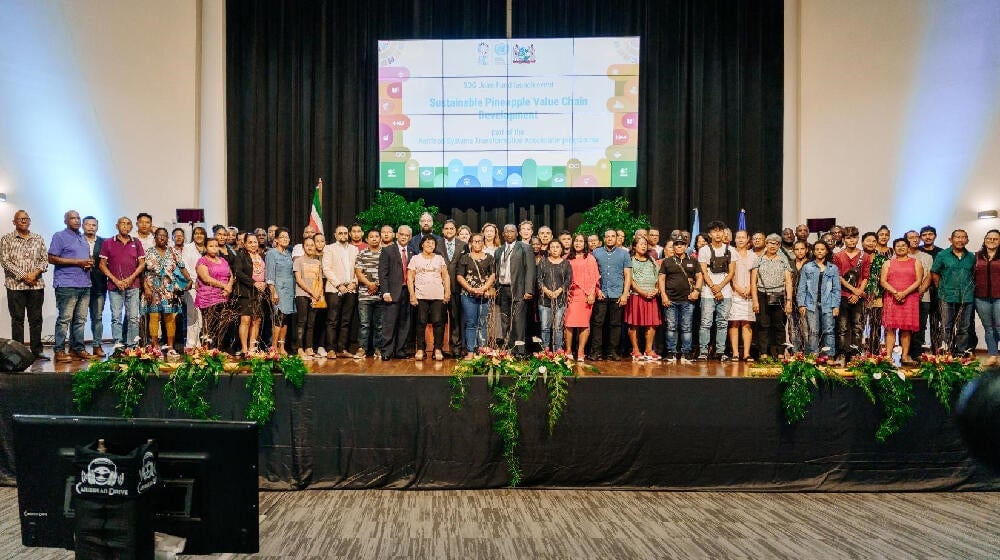Under the patronage of His Excellency Chandrikapersad Santokhi, President of Suriname, and in the presence of the UN Resident Coordinator Ad Interim, Dr. Dennis Zulu, representatives from the United Nations and government officials from Suriname launched a significant UN Joint SDG Fund project to upgrade the pineapple sector through a program that will benefit indigenous and other rural communities. The four-year project run by FAO, UNIDO, the International Labour Organization (ILO), and the United Nations Population Fund (UNFPA), and with USD 2 million in financing from the UN Joint SDG Fund, is bringing on board not only pineapple producers but also processors, traders, input providers, government ministries, research institutes, and financial institutions.
The goal is to increase the pineapple production tenfold to 20,000 tonnes a year by 2030 for domestic and international markets thanks to an upgrading of Suriname’s pineapple value chain.
In turn, at least USD 10 million a year will be generated from increased fruit and pineapple products, and 1,000 new jobs created that will positively impact rural livelihoods. The jobs will span production and processing to trading, inputs supply, and support services delivery, with women and young people standing to benefit the most.
“Pineapple is a fruit that the Indigenous people produce for centuries for their own consumption,” notes Gladys Kabelefodi, who has been Captain of Klein Powakka in the country’s Para district for the last ten years. “The knowledge the farmers got from their ancestors. Currently, you have farmers that produce for the local market.”
As Captain Gladys Kabelefodi explains, the pineapple cultivation is based on traditional knowledge. Embedded within the traditional agricultural knowledge are the gender roles, where foremost women and children are spending time in the fields, and men are used for clearing the plots and play a main role in the financial decision–making. Ensuring that women and youth have equal opportunities and access to business knowledge, loans, and participate in this project is keys into UNFPA her mandate.
The UNFPA her mandate of increasing gender equality, gender equity, leaving no one behind, and zero GBV are the key messages in this project. Next to, ensuring that based on the FPIC methodology the engagement of women, youth, and other vulnerable is guaranteed. By raising awareness, using gender–responsive/transformative strategies in developing a community engagement strategy and capacity-building programs in which female and male farmers are structurally included.


